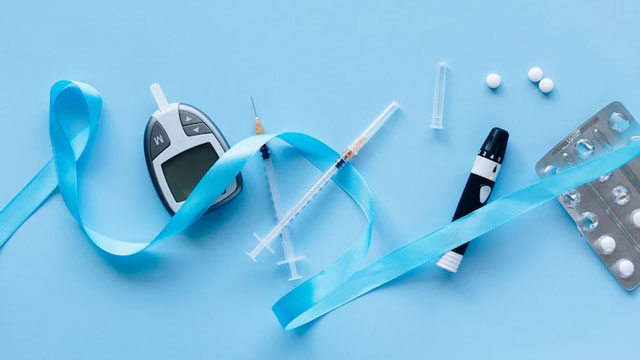Daijiworld Media Network – New Delhi
New Delhi, Nov 12: Many health habits that shape lifelong wellbeing are formed during the 20s and 30s, and experts say this is the most crucial phase to prevent type 2 diabetes. Studies reveal that lifestyle patterns developed in early adulthood—such as poor diet, inactivity, and irregular routines—can significantly determine the onset of diabetes later in life.
A study from Korea published in PubMed Central found that among adults aged 20–39, 27.7% of men and 16.3% of women were already in the pre-diabetic range, while 1.4% of men and 1.3% of women had diabetes. Similarly, the Registry of Youth Onset Diabetes in India (YDR) found that more people aged 20 to 40 are developing type 2 diabetes due to erratic eating habits and sedentary lifestyles.

Sedentary lifestyle and low physical activity
Long hours of sitting, minimal movement, and lack of regular exercise reduce insulin sensitivity, raising diabetes risk. Korean data show that young men who engaged only in light activity were 1.55 times more likely to develop pre-diabetes than those with moderate to vigorous activity. The WHO recommends at least 30 minutes of moderate exercise daily to protect metabolic health.
Unhealthy diet and weight gain
Consuming ultra-processed foods, sugary drinks, and excess calories while lacking fiber contributes to obesity and insulin resistance. Dr Jared P. Reis’s study found that individuals who maintained healthy weight, ate balanced diets, exercised, and avoided smoking and heavy drinking were far less likely to develop diabetes. Weight gain in early adulthood increases cumulative metabolic stress over time.
Irregular sleep patterns
Disrupted sleep and inconsistent routines impair glucose control. Late nights, shift work, and poor sleep quality increase insulin resistance. Establishing regular sleep cycles supports stable metabolism and helps prevent diabetes.
Skipping breakfast and erratic eating
Skipping breakfast or having irregular meals affects blood sugar regulation. Studies link breakfast omission with higher glucose levels and insulin resistance. Eating balanced, timely meals—especially a healthy breakfast—stabilizes metabolism and reduces hunger fluctuations.
Alcohol, smoking, and substance use
Frequent alcohol consumption and smoking in youth amplify diabetes risk. These habits interfere with insulin activity and increase fat accumulation. Studies show that young adults engaging in multiple unhealthy behaviors—smoking, drinking, inactivity, and poor diet—accelerate the onset of diabetes.
Stress and mental health
Chronic stress releases hormones like cortisol that hinder insulin efficiency and promote belly fat. Economic pressure, job stress, and lifestyle transitions during early adulthood make mental health management vital for diabetes prevention.
Lack of awareness and delayed screening
Many in their 20s and 30s believe they are “too young” for diabetes, often skipping tests. The Korean study noted that higher BMI, age within the 20–30 range, and low education levels predicted elevated blood sugar. Regular checks of fasting glucose, HbA1c, and waist circumference can help detect early risks.
Cumulative exposure to risk
Experts warn that risks accumulate over time. Weight gain before age 30 does greater long-term harm, with studies showing that those obese before 30 are over 75% more likely to die early from diabetes or heart disease.
Preventive action
Doctors advise staying active for at least 150 minutes weekly, eating fiber-rich foods, cutting sugar and processed items, maintaining healthy sleep routines, and managing stress. Avoid smoking and limit alcohol. Even modest weight loss can significantly improve insulin response.
Lifestyle choices in your 20s and 30s define your future health. By recognizing risks early and building steady habits now, you can delay or even prevent diabetes completely.